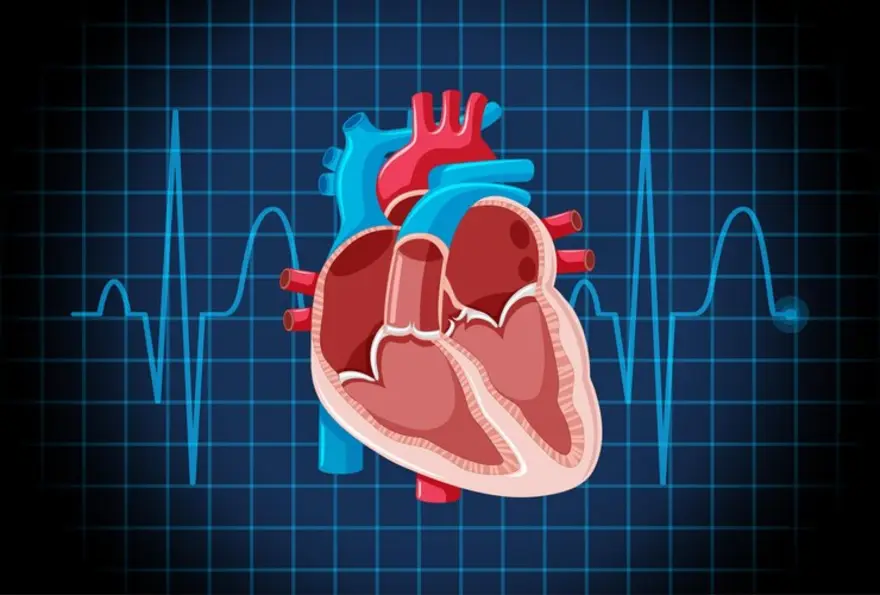Preventive Healthcare
Arthritis: Understanding Its Types, Causes and Treatment
2548 Views
0

Arthritis is a common condition that affects millions of people worldwide. It is an umbrella term for more than 100 types of joint inflammation and stiffness, making it crucial to understand each type's unique symptoms and characteristics. Whether you are experiencing occasional pain or chronic discomfort in your joints, identifying the correct type of arthritis can help you find the right treatment plan for relief. In this blog post, we will explore the different types and symptoms of arthritis, so you can stay informed about this prevalent ailment that could affect anyone at any age.
What Is Arthritis?
Arthritis is a general term for conditions that affect the joints and surrounding tissues. The most common symptom of arthritis is pain, which can range from mild to severe.
Arthritis can be divided into two main categories: inflammatory and non-inflammatory.
Inflammatory arthritis is characterised by inflammation of the joints, which can lead to pain, swelling and stiffness.
Non-inflammatory arthritis does not involve inflammation, but can still cause joint damage and pain.

Different Types of Arthritis
Osteoarthritis
Osteoarthritis is the most common type of arthritis and affects millions of people worldwide. It is a degenerative disease that causes the deterioration of the cartilage in the joints, resulting in pain, stiffness and inflammation.
There are many different treatments available for osteoarthritis, but there is no cure. The goal of treatment is to relieve pain and improve quality of life. Weight loss, exercise and pain relief medication can all help to manage symptoms of arthritis.
Rheumatoid Arthritis
Rheumatoid arthritis (RA) is a chronic autoimmune disease that causes inflammation of the joints. The main symptoms of RA are joint pain, stiffness and swelling.
RA can also cause fatigue, loss of appetite and weight loss. There is no known cure, but treatment can help to control the symptoms of RA and prevent further damage to the joints.
Psoriatic Arthritis
Psoriatic arthritis is a type of inflammatory arthritis that affects people with psoriasis. Psoriasis is a condition that causes patches of thick, red skin and silvery scales.
People with psoriatic arthritis often have joint pain, stiffness and swelling. They may also have fatigue, eye problems and nail changes.
There is no cure for psoriatic arthritis, but treatment options include anti-inflammatory medications, disease-modifying antirheumatic drugs (DMARDs), biological agents and physical therapy.
Gout
Gout is a type of arthritis that affects the joints, typically the big toe. It is caused by the buildup of uric acid in the body, which can be the result of a diet high in purines or certain medical conditions.
Symptoms of gout include sudden, severe joint pain, swelling, redness and warmth. Treatment focuses on reducing the amount of uric acid in the body and relieving symptoms of arthritis.
Causes of Arthritis
There are many potential causes of arthritis. In some cases, it may be due to a genetic predisposition or an autoimmune disorder.
In other cases, it may be the result of an injury or infection. And in still others, it may simply be the result of ageing or wear and tear on the joints.
No matter what the cause, arthritis can be a debilitating condition that significantly impacts your quality of life.

Diagnosing Arthritis
To diagnose arthritis, your doctor will ask about your medical history and symptoms and will order tests to look for inflammation, damage to the joints and/or changes in the bones.
- Blood Tests: Blood tests can show signs of inflammation, such as an elevated level of white blood cells.
- X-Rays: Imaging tests, such as X-rays, can show damage to the joints and changes in the bones caused by arthritis.
- Joint Fluid Analysis: This test looks for crystals or other substances that can be found in the joint fluid that may indicate certain types of arthritis.
- MRI or Ultrasound Scan: These imaging tests can help detect tissue, joint and cartilage damage.
Treatment for Arthritis
There are many different types of arthritis, and each one requires its unique treatment. Treatment options for arthritis include medication, physical therapy and surgery.
Medication is the most common form of treatment for arthritis. There are a variety of medications available to help relieve the pain and inflammation associated with arthritis.
Physical therapy is another common treatment option. Physical therapists can help you strengthen the muscles around the joints affected by arthritis and improve your range of motion.
Surgery is a last resort option for treating arthritis. If other treatments fail to provide relief, surgery may be recommended to repair or replace the damaged joints.
Prevention of Arthritis
The best way to prevent arthritis is by maintaining a healthy lifestyle and keeping your joints healthy. Here are some tips for preventing arthritis:
1. Exercise Regularly: This will help to keep your joints strong and flexible.
2. Eat a Healthy Diet: This will help to reduce inflammation throughout your body, which can lead to arthritis pain.
3. Avoid Injury to your Joints: This includes avoiding activities that put too much stress on your joints or that may cause you to fall.
4. Get Regular Checkups with your Doctor: By checking with a doctor, any early signs of arthritis can be caught and treated before they become more serious.
Conclusion
In conclusion, arthritis is a complex condition that affects millions of people around the world. It is important to understand the different types and symptoms of arthritis so that you can get an accurate diagnosis and make informed decisions about your treatment options. There are many treatments available for each type of arthritis, including lifestyle changes, medications and physical therapy. Talk to your doctor if you think you may have any type of arthritis and book a home visit with Metropolis Labs for an Arthritis Profile test. Early diagnosis can help reduce pain and disability caused by the condition in the long run.
 Home Visit
Home Visit Upload
Upload














1701259759.webp)









 WhatsApp
WhatsApp